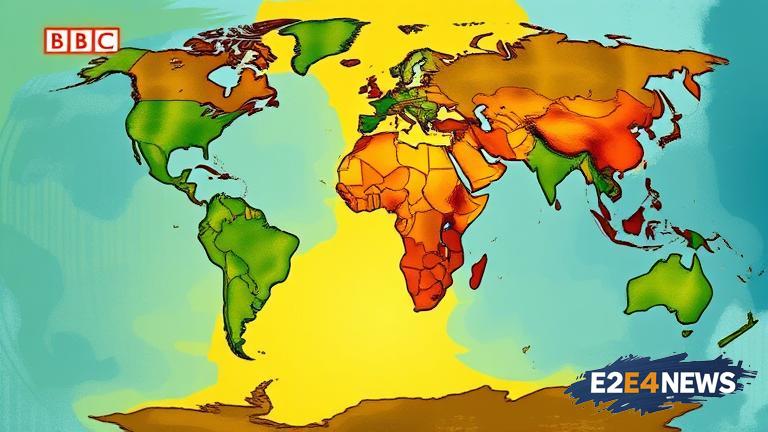The world is facing an unprecedented threat to global food systems due to climate change. Rising temperatures, changing precipitation patterns, and increased frequency of extreme weather events are altering the conditions necessary for crop growth and livestock production. This has significant implications for food security, as the world’s population is projected to reach 9.7 billion by 2050. Climate change is expected to lead to reduced crop yields, decreased water availability, and increased pest and disease pressure, ultimately affecting the livelihoods of farmers and the availability of food for consumers. The consequences of climate change on food systems are far-reaching, with potential impacts on human health, economic stability, and social cohesion. In recent years, the world has witnessed an increase in extreme weather events such as droughts, floods, and heatwaves, which have devastating effects on agricultural productivity. For instance, the 2019-2020 locust infestation in East Africa, exacerbated by climate change, resulted in significant crop losses and food shortages. Furthermore, climate change is altering the distribution and prevalence of crop and livestock diseases, as well as the migration patterns of pollinators, which are essential for food production. The effects of climate change on food systems are not limited to production; they also impact food processing, transportation, and storage. As the world grapples with the challenges posed by climate change, it is essential to develop and implement climate-resilient agricultural practices, improve early warning systems for extreme weather events, and enhance international cooperation to address the global implications of climate change on food security. The development of climate-smart agriculture, which involves the use of technologies and practices that help farmers adapt to climate change, is critical to ensuring the long-term sustainability of food systems. Additionally, reducing greenhouse gas emissions from agricultural activities, such as the use of synthetic fertilizers and livestock production, is essential to mitigating the impacts of climate change. The international community must come together to address the challenges posed by climate change, including the development of policies and programs that support climate-resilient agriculture, improve food storage and transportation infrastructure, and provide support to farmers and communities affected by climate-related disasters. The consequences of inaction will be severe, with potential impacts on human health, economic stability, and social cohesion. Therefore, it is essential to take immediate action to address the impacts of climate change on global food systems. The world must work together to develop and implement effective solutions to ensure the long-term sustainability of food systems and the well-being of future generations. Climate change is a global problem that requires a global response, and the international community must come together to address this critical issue. The development of climate-resilient food systems is essential to ensuring the availability of food for future generations, and it is critical that we take action now to address the challenges posed by climate change.
